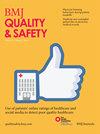The ageing surgeon
引用次数: 6
Abstract
We all grow old. Even surgeons. We slow down, we weaken and our skills diminish. Although individuals differ and chronological age may not be an accurate guide to biological age, we cannot hold back the advancing years. How long should we allow surgeons to keep operating? If public safety is the priority, as it must be, should there be a mandatory retirement age, as there is for pilots in the airline industry? Or is there a fair and equitable way of assessing those nearing the end of their career to ensure their competency is maintained? The ageing surgeon poses daunting challenges. For the individuals concerned, the idea of ageing may trigger fears about loss of status, identity and livelihood. Patients may worry about the quality of their care. For healthcare systems struggling to meet growing demand, this issue raises questions about capacity. Medical regulators in Australia and Canada are implementing additional checks on doctors from the age of 70 years,1 2 but most countries have no mandatory retirement age for surgeons and those where it once existed have moved away from such a prescribed approach.3 Globally, the surgical workforce is ageing, with figures of those above 65 years ranging from as high as 25% in the USA,4 and 19% in Australia and New Zealand,5 to 9% in the UK.6 Cognitive decline is evident in older surgeons, as in ageing adults generally. The 2008 Cognitive Changes and Retirement among Senior Surgeons study found a deterioration in attention, reaction time, memory and sensory changes in vision, visual processing speed and hearing.7 A further study, however, found the decline was slower in surgeons than in age-matched controls.8 Importantly though, the assessment in that study did not encompass all surgical skills. Some studies have shown that older …年迈的外科医生
我们都变老了。甚至是外科医生。我们放慢了速度,削弱了我们的能力。尽管个体不同,按时间顺序排列的年龄可能不是生物年龄的准确指南,但我们不能阻止年龄的增长。我们应该允许外科医生继续手术多久?如果公共安全是首要任务,那么是否应该像航空业的飞行员一样,强制规定退休年龄?或者,是否有一种公平公正的方式来评估那些即将结束职业生涯的人,以确保他们的能力得到保持?这位上了年纪的外科医生面临着严峻的挑战。对于有关个人来说,老龄化的想法可能会引发对失去地位、身份和生计的担忧。患者可能会担心他们的护理质量。对于难以满足日益增长的需求的医疗系统来说,这个问题引发了对能力的质疑。澳大利亚和加拿大的医疗监管机构正在对70岁以下的医生实施额外的检查,12但大多数国家对外科医生没有强制性的退休年龄,而那些曾经存在退休年龄的国家已经不再采用这种规定的方法。3在全球范围内,外科劳动力正在老龄化,65岁以上的人数在美国高达25%,澳大利亚和新西兰分别为4%和19%,英国为5%至9%。6老年外科医生和老年人一样,认知能力明显下降。2008年高级外科医生的认知变化和退休研究发现,注意力、反应时间、记忆力以及视觉、视觉处理速度和听力方面的感觉变化都有所恶化。7然而,一项进一步的研究发现,外科医生的下降速度慢于年龄匹配的对照组。8但重要的是,该研究中的评估并没有涵盖所有的手术技能。一些研究表明,老年人…
本文章由计算机程序翻译,如有差异,请以英文原文为准。
求助全文
约1分钟内获得全文
求助全文

 求助内容:
求助内容: 应助结果提醒方式:
应助结果提醒方式:


